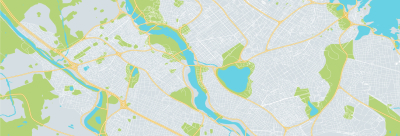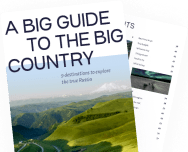The cost of group delivery from Gorno-Altaysk airport to the Taezhnik tourist complex (round trip) As a GIFT when purchasing this tour.
Advice from the tour organizers: buy air tickets to the airport in Gorno-Altaysk (the capital of the Altai Republic) with an arrival time of 10:30 a.m. since delivery from the airport to Taiga takes 25 minutes. Delivery from Barnaul (Altai Krai, a neighboring region) to Taiga takes 4-5 hours.
The meeting at the airport of Gorno-Altaysk is carried out according to the time of arrival of the aircraft.
We ask you to inform us about the actual delays in departure time (by message, NOT by phone, to the phone (to be indicated on the voucher) so that we can meet you on time. We will inform you about which car will meet you with a message either on the evening before arrival or during your flight.
We kindly ask you to TURN on your phones immediately after boarding the plane so that the drivers can contact you and take with them the phones whose numbers are indicated in the application.
A group transfer means that if you and other tourists arrive on flights with a landing gap of less than 1 hour, those who arrived earlier will wait for the next plane to board and the tourists arriving on it.
It is possible to arrange individual delivery from / to the airport to Taiga, if you do not want to travel by group transfer for 1,000 rubles / car (one way) capacity from 1 to 4 people.
Attention! one day before the start of the route, tourists are sent the car number and the phone number of the driver who meets them. Therefore, please provide the correct phone numbers so that it is convenient to contact the driver. For those arriving at the airport of Gorno-Altaysk, the driver's contacts and driver's number are sent immediately before arrival.
The rest of the delivery is for an additional fee.
The order of the delivery option is carried out at any time from the moment of booking the tour, but no later than 7 days before the start of the tour. When booking a tour, be sure to tell us which delivery option is preferable for you. The manager will help you arrange a transfer (a place in a collection car, a regular bus or a tourist bus).
Recommendations for delivery from Novosibirsk.
Delivery from Novosibirsk in both directions is carried out independently on regular buses of the Novosibirsk bus station, or on tourist buses, depends on the chosen date of the tour, if tourist buses do not run on the day you need (check with the manager), then in this case tickets can be purchased independently on the website https://e-traffic.ru / or on another website that sells tickets, or at the ticket offices of the Novosibirsk bus station.
To be in time for the start of the tour, you need to purchase a ticket for the Novosibirsk - Chemal flight, before stopping atManzherok (get off before reaching 2.5 km to the village at the monument to Shishkov, or at the Taiga station, which you can ask the driver about in advance) with the departure time from the bus station at 22:15 (from the bus station located at the railway station - 22:45), departure date on the day preceding the start date of the tour. Tickets can be purchased 10 days before departure day. The return trip is carried out by bus from Chemal to Novosibirsk, the departure time from Taezhnik is 22:40 - 23:00, the bus must be stopped at Taezhnik (Important! tickets must be purchased from Manzherok village to Barnaul/Novosibirsk, those who purchase tickets from the village of Manzherok are called by bus station staff and asked where to pick them up. No one calls those who purchase tickets from the Chemal bus station, their tickets are automatically canceled if they are not on board).
The arrival time in Novosibirsk is 7:15 a.m., this should be taken into account when purchasing tickets from Novosibirsk. The cost of delivery depends on the cost of flight tickets.
Recommendations for delivery from Barnaul.
Delivery is carried out by private carriers and at the rates of private carriers, payment is made on the spot to the driver (the tour operator only helps with the organization of delivery).
Meeting at Barnaul airport (from 5:50 a.m. to 7:50 a.m.), meeting at Barnaul railway station from 8:00 a.m. to 9:00 a.m.
If you arrived in Barnaul in advance or live there, you will coordinate the meeting place with the driver, he will pick you up if he is on his way, if not, he will indicate the meeting place.
The car leaves if the delivery team is assembled in full.
The driver will have your contact phone numbers, along with information about the place and time of the meeting, and the driver will contact you.
Cars do NOT set off on the route without meeting all tourists, provided that all planes arrive on time (the waiting time can be adjusted by 1 hour).
If the plane is delayed by 1 hour or more, the cars that have been formed are sent on the flight, your contact information is sent to the driver of another car, and the departure time depends on the set of cars.
We kindly ask that you TURN on your phones immediately after boarding the plane so that the drivers can contact you and take with you the phones whose numbers are indicated in the application.
Departure from Taezhnik shopping center is carried out at 22:30 on the day of the end of the route (optional), or at 10:30 - 11:00 the next day.
Travel time is 3-4 hours. If there are no cars, you can take a regular bus.
The cost of transfer from the airport is 2100 RUB/person in one direction
The cost of a transfer from the railway station is 1600 rubles / person in one direction
The cost of an individual car starts from 8000.00 depending on the number of people, if more than four cars cost the number of seats * the price of the starting place
(the tour operator does not guarantee a fixed price).






















































